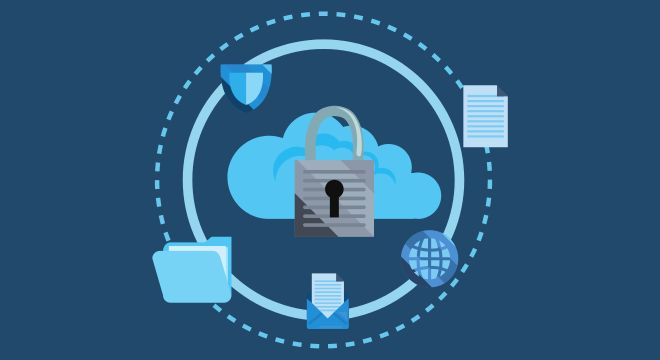In an era where technology underpins much of our healthcare infrastructure, the threat of cyberattacks has become a dire reality for post-acute care organizations, who increasingly find themselves targeted by cybercriminals.
Organizations like yours often house sensitive patient information, including personal identification details, medical histories, and payment information. This data is highly valuable on the black market, making healthcare facilities attractive targets.
Beyond Privacy Breaches: The Ripple Effects on Care
The immediate disruption of services can have cascading effects on patient care and safety. For instance, when systems go offline, healthcare providers lose access to real-time patient information, which is crucial for treating conditions accurately and efficiently. Medication administration can be delayed or mishandled without proper records, and critical test results may be inaccessible.
The psychological impact on patients and staff is another significant concern. Patients may experience increased anxiety and stress due to delays in care and uncertainty about their treatment plans. Healthcare providers, already working in high-stress environments, face additional pressure as they navigate manual processes and attempt to maintain quality care under challenging circumstances.
Moreover, the financial strain of a cyberattack can be substantial. The costs associated with restoring systems, recovering data, and implementing additional security measures can be overwhelming, particularly for smaller post-acute care organizations with limited budgets. These financial burdens can divert resources away from patient care, further exacerbating the impact on the organization.
Real-World Examples Of Cyberattacks in Healthcare
The impact of cyberattacks on post-acute care organizations can be severe. For instance, in 2017, the WannaCry ransomware attack affected numerous healthcare facilities worldwide, including post-acute care centers. The attack caused widespread chaos, disrupting operations and compromising patient safety. In the aftermath, many organizations had to invest heavily in IT infrastructure upgrades and cybersecurity training to prevent future incidents.
In 2020, Lorien Health Services notified it’s 47,000+ residents that their data may have been stolen and encrypted by the ransomware strain NetWalk, which has a history of attacking healthcare organizations. Data exposed included residents’ names, Social Security numbers, dates of birth, addresses, medical history, and treatment information.
More recently, an operating group of nursing homes in the Midwest declared bankruptcy, citing ongoing financial problems that stemmed from an October 2023 ransomware attack—a problem further exacerbated by the recent Change Healthcare cyberattack in February of 2024.
WATCH NOW ON DEMAND
Strengthening Cybersecurity in Post-Acute Care: Training Strategies For Protecting Your Organization
Listen in as Shloimy Levinger, CEO at SpareEye, and Avi Singer, Founder & CEO at showdme, discuss how your organization can reduce the risk of cyberattacks and optimize data security with a holistic employee training strategy.
Strategies for Protecting Your Organization
Given the serious nature of these threats, it is imperative for post-acute care organizations to implement robust cybersecurity measures. Here are some key strategies to protect against cyberattacks:
- Regular Security Audits and Risk Assessments: Conducting regular security audits and risk assessments helps identify vulnerabilities within the organization’s IT infrastructure. This proactive approach allows for timely mitigation of risks and strengthens overall security posture.
- Investing in Advanced Security Technologies: Utilizing advanced security technologies, such as firewalls, intrusion detection systems, and encryption, can significantly enhance the protection of sensitive data. Endpoint protection and network monitoring tools are also essential in detecting and responding to potential threats.
- Developing and Enforcing Strong Security Policies: Establishing comprehensive security policies and ensuring their enforcement is crucial. This includes implementing strong password policies, restricting access to sensitive information, and regularly updating software and systems.
- Incident Response Planning: Having a well-defined incident response plan is vital for minimizing the impact of a cyberattack. This plan should outline the steps to be taken in the event of a breach, including communication protocols, data recovery procedures, and coordination with law enforcement and cybersecurity experts.
- Collaboration with Cybersecurity Experts: Partnering with cybersecurity experts can provide valuable insights and support in enhancing an organization’s security posture. These experts can assist in developing and implementing comprehensive security strategies tailored to the specific needs of post-acute care organizations.
The Need For Ongoing Cybersecurity Training
Among the various strategies, ongoing cybersecurity training stands out as a critical component. Training programs that go beyond HIPAA, such as those offered by Showdme address the unique challenges faced by post-acute care organizations, including:
- Recognizing and Responding to Phishing Attacks: Employees should be trained to identify phishing emails and know how to report them. Simulated phishing exercises can help reinforce this training.
- Secure Handling of Patient Information: Staff should understand the importance of protecting patient data and be familiar with best practices for data security, including the use of encryption and secure communication channels.
- Incident Reporting and Response: Employees should be aware of the procedures for reporting security incidents and understand their role in the organization’s incident response plan.
- Regular Updates on Emerging Threats: Cybersecurity training should be an ongoing process, with regular updates on new and emerging threats. This ensures that staff remains vigilant and prepared to deal with the latest challenges.
The threat of cybercriminals to post-acute care organizations is real and growing. The consequences of cyberattacks can be devastating, but by implementing robust cybersecurity measures and fostering a culture of security awareness, these organizations can protect themselves and their patients. Ongoing cybersecurity training for your entire staff, in particular, plays a vital role in equipping staff with the knowledge and skills needed to defend against cyber threats. By prioritizing cybersecurity, post-acute care organizations can ensure the safety and well-being of their patients and maintain the trust and confidence of their stakeholders.
Cybersecurity Training for Post-Acute Care
Go beyond HIPAA training by equipping your staff with the knowledge to reduce the risk of cyberattacks with our comprehensive online cybersecurity training program, fully managed by Showdme.





